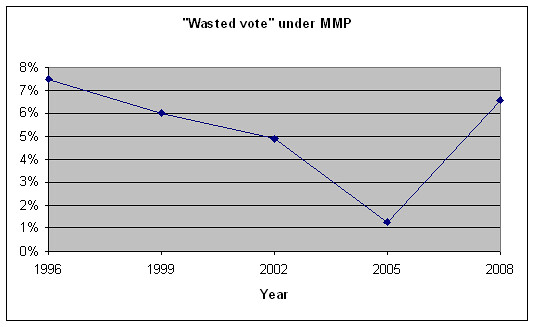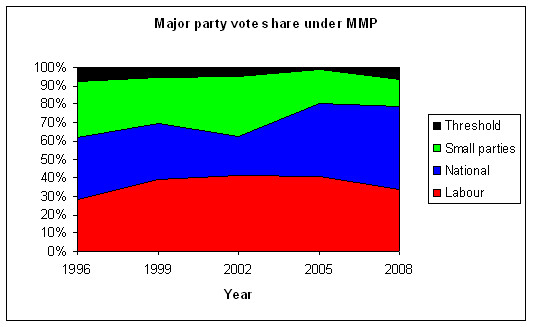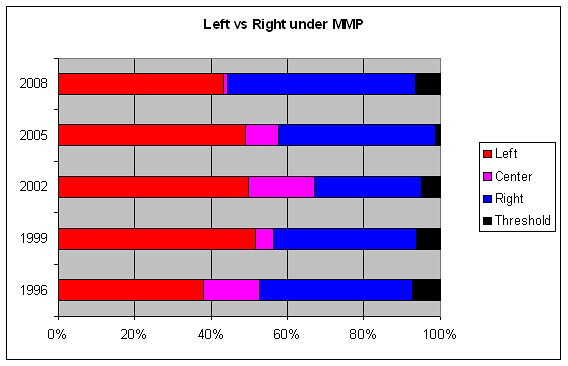DPF has his traditional post-election posts on demographics and the special votes. It looks like National is most at risk of losing seats on the specials (likely to Labour and/or the Greens), while we've seen a slight increase in the number of female MPs and a slight decrease in Maori representation. DPF makes much of the act that National has more women and as many Maori as labour, but given that their caucus is almost 50% bigger, I don't think its anything to be proud of. Meanwhile, we've also had increases in the number of Pacific and Asian MPs, though both are still well below their proportion of the population. Still, it's a welcome improvement.
Meanwhile, I've been crunching the numbers. The big story this election is an increase in the "wasted vote", the votes not counted because they were given to parties which did not make the 5% threshold and did not win an electorate MP:

137,500 New Zealanders were disenfranchised in this way. Isn't it time we fixed this problem, and made every vote count?
The primary reason for the increase in the wasted vote was NZ First falling just below the threshold. This saw a third-party bloodbath even worse than 2005:

And as a result, the centre - already squeezed in previous elections - was virtually eliminated:

(There is a line there - it's Peter Dunne, all by himself; as in 2005, I've categorised the Maori party as left based on the predominant views of their supporters)
This probably isn't good for our political system in the long-term, as when Dunne goes it will disappear completely, reducing our elections to a war between two competing blocks with no meeting point in the middle. Other proportional representation jurisdictions have managed to grow centre parties which switch their support between left and right and act as a moderating influence (a role Peter Dunne aspired to, before he crawled into bed with the Christians). But after five MMP elections, it seems that New Zealand voters don't really want one.





